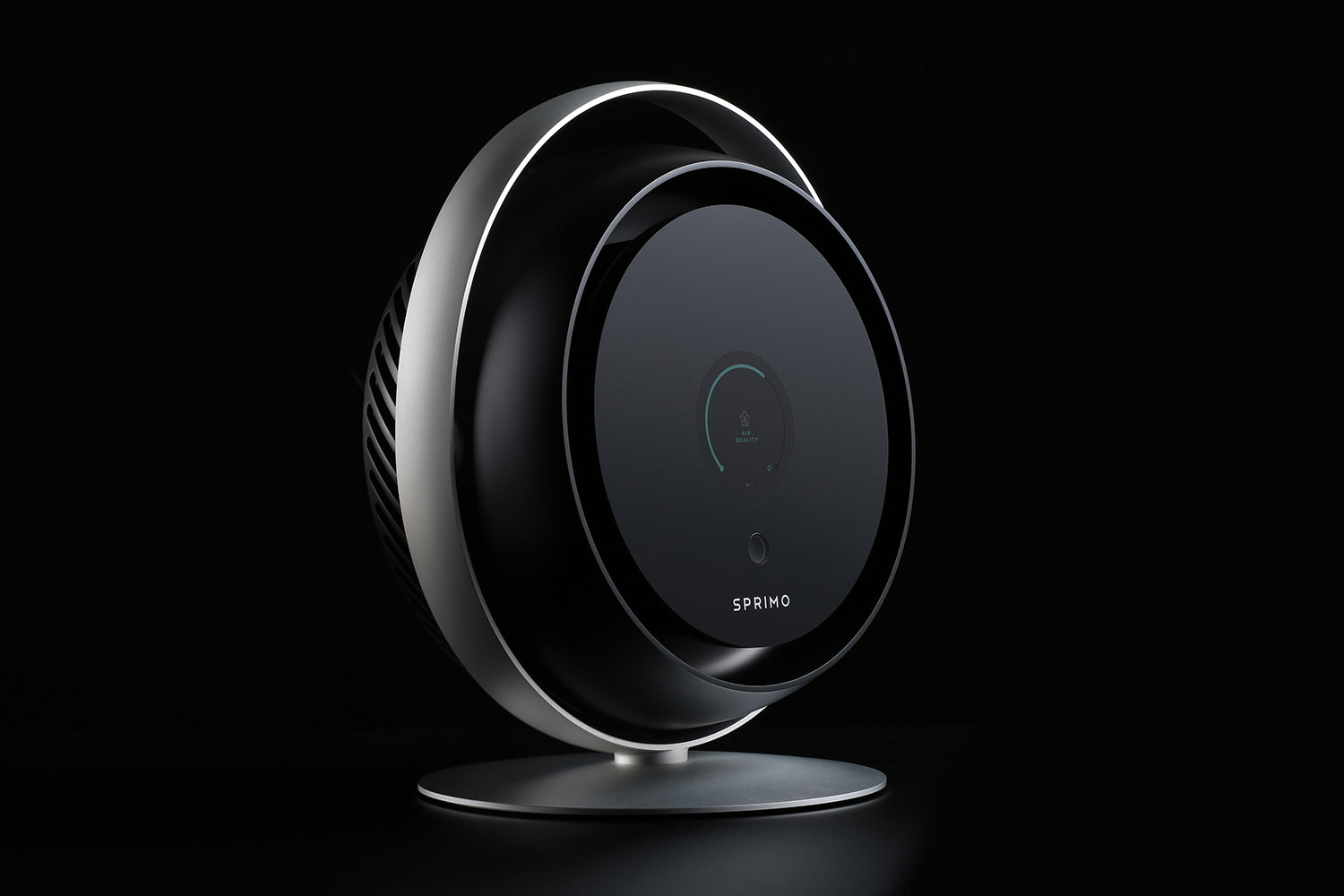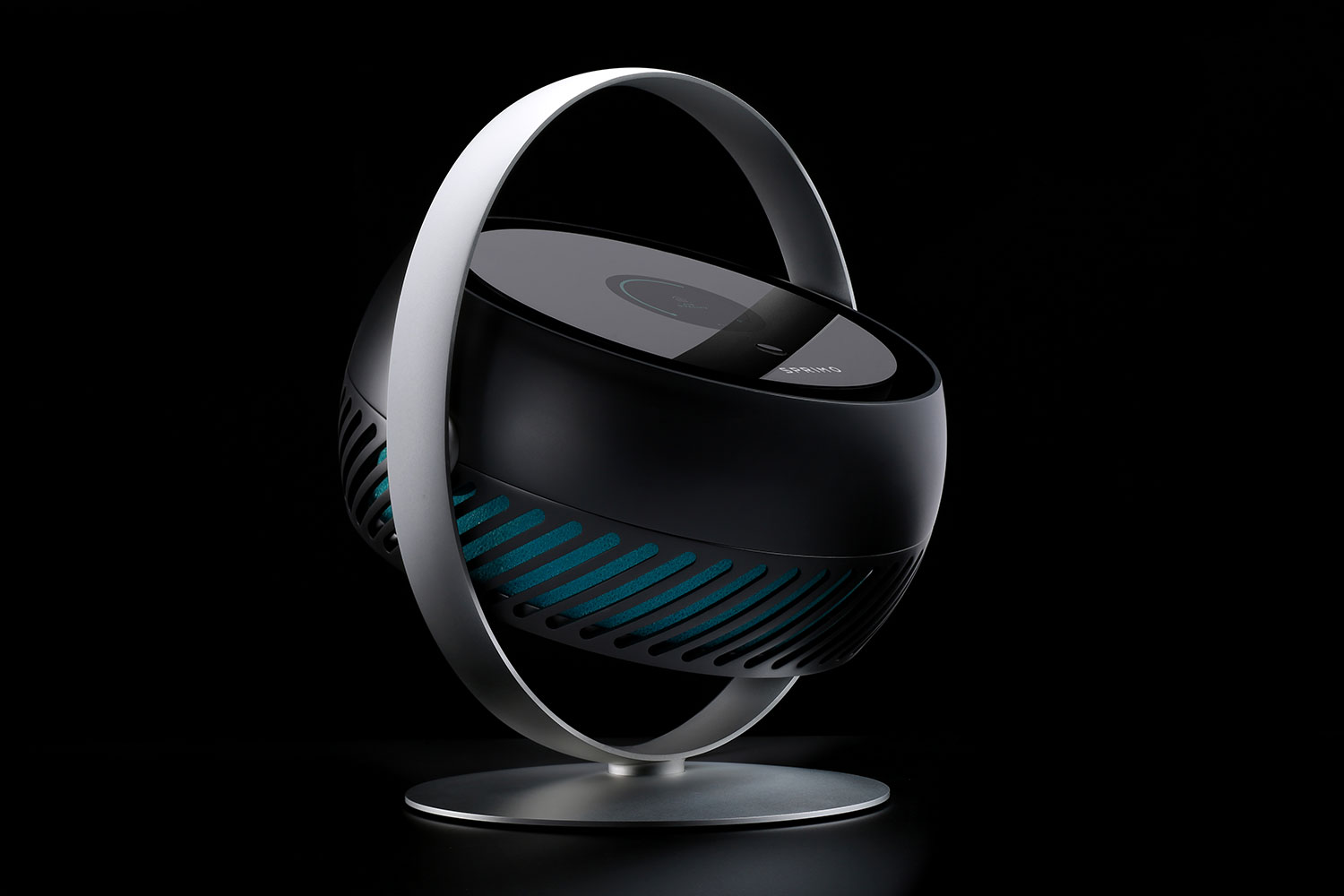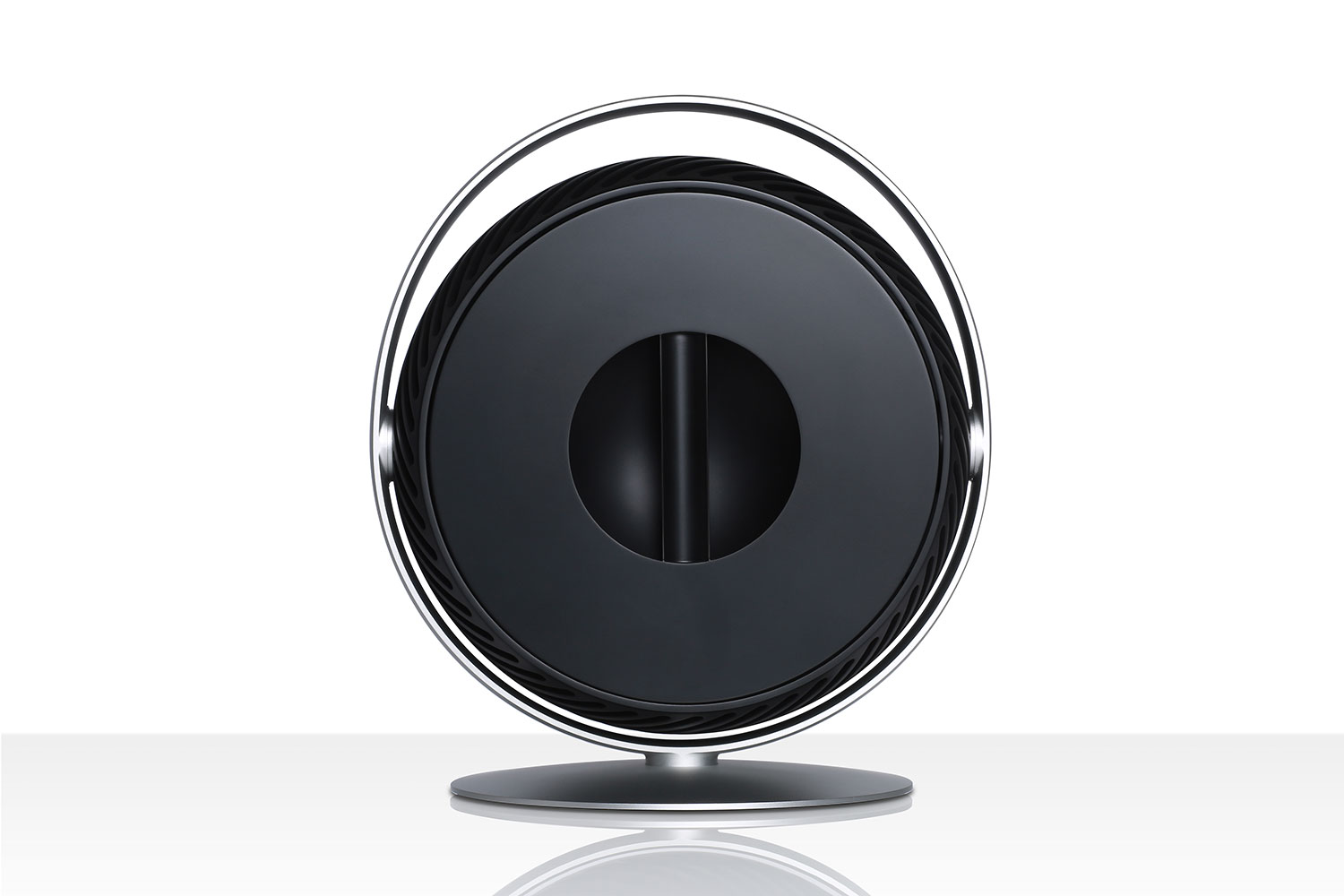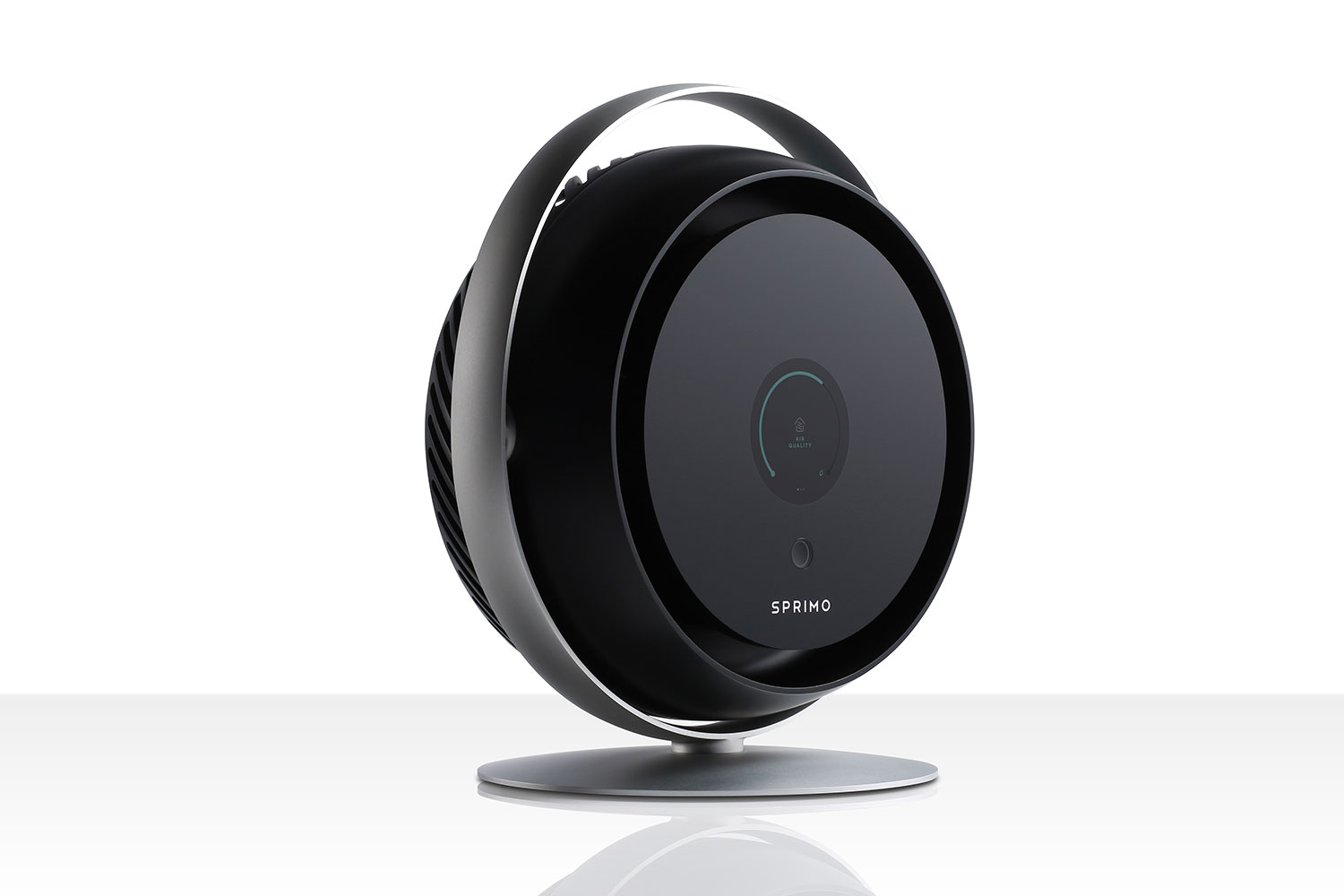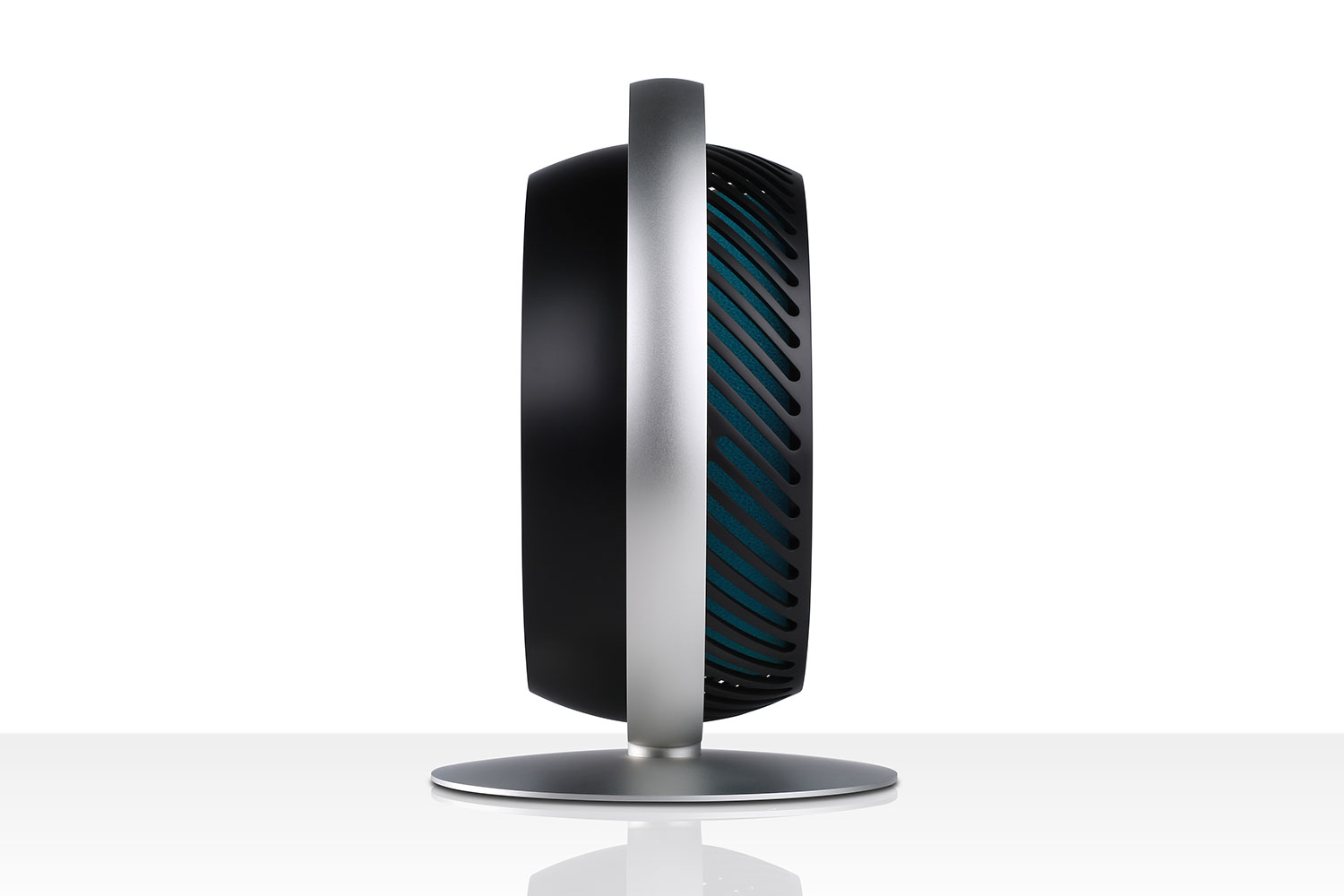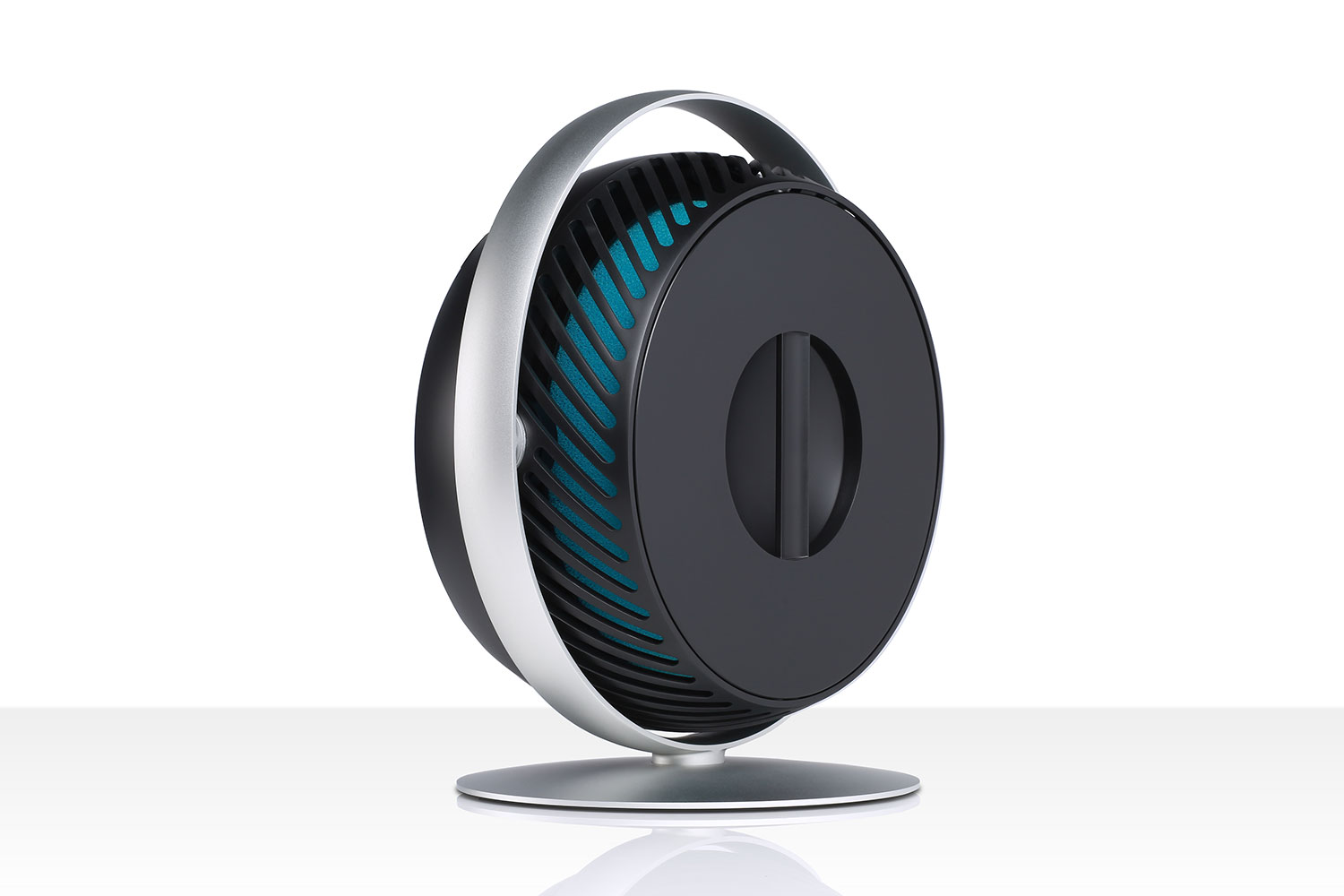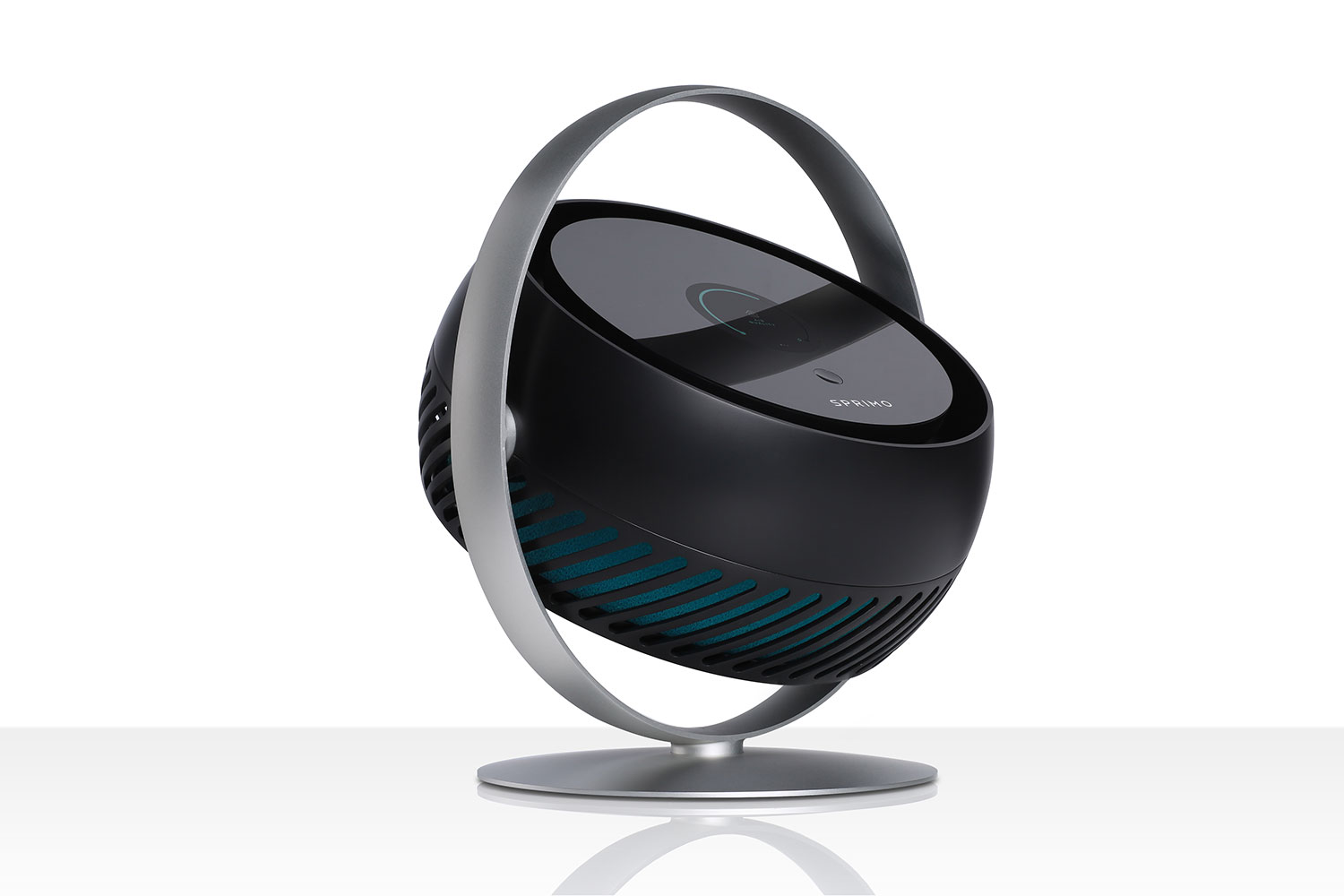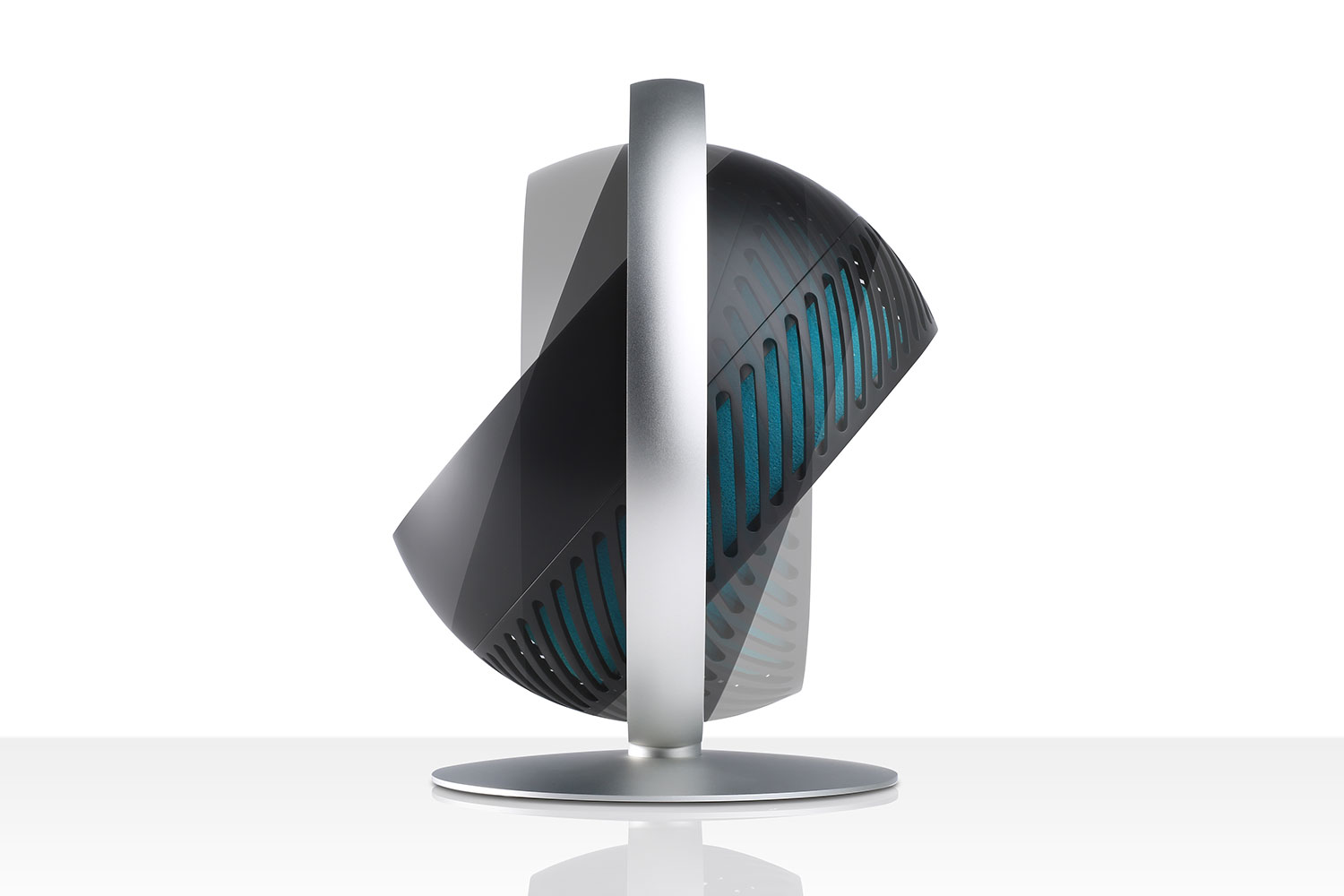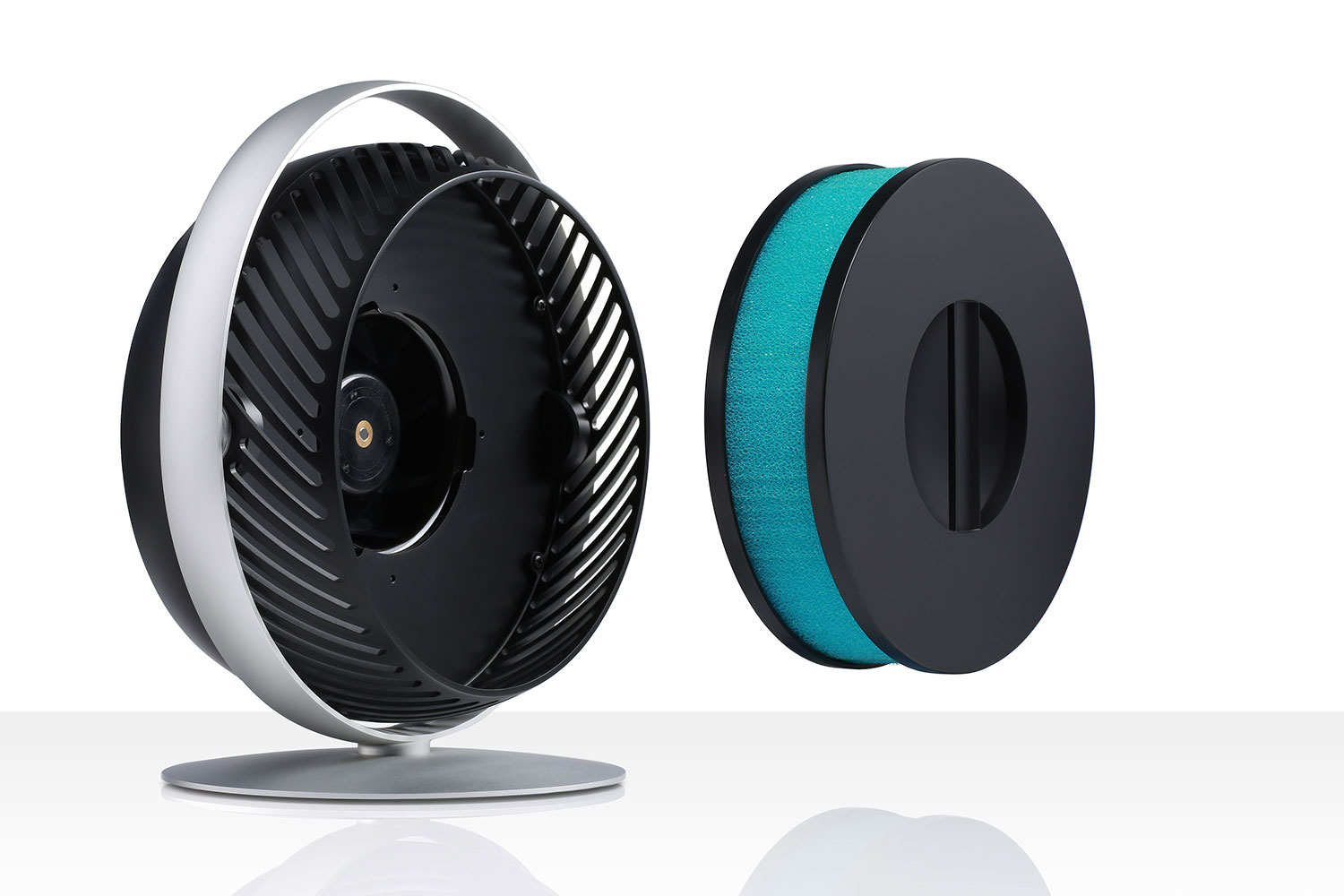There are tons of air purifiers that promise to suck all the icky stuff out your room. Sprimo claims the same, but it’s a desktop version, more geared at producing a personalized bubble of clean air for you, for use either at home or at work. To that end, the 12-inch-tall, seven-pound device is meant to sit on your desk. The bubble extends about six feet.
Related: Continue to keep your air clean with these other purifiers out on the market
“If you have allergies, a dog, a cat, or the guy behind you smokes or had curry for lunch, you can have your fresh air over you, directed exactly the way you want it,” Sprimo CEO Ray Combs told Digital Trends while showing off a demo version of the purifier. If you tilt the device upward and give it about 17 minutes, it will still clean the entire room, but it’s that personal bubble that sets it apart, claims Combs.
The Sprimo is smart, has a touchscreen, and is Linux-based. It’s first going to work with iPhones, but an Android version will come later. There are three screens right now; one that gives you an air-quality score (taking into account the air’s temperature and humidity and the amount or volatile organic compounds it’s filtering out and how much CO2 it’s measuring), one that controls the fan speed from zero to 100, and one that tracks the lifespan of the filter.
There’s going to be a bit of a learning curve when people first get their Sprimos, Combs told us. How do you know if your level of VOCs is safe? You just got an alert that there was suddenly a spike in activity with the filter. Should you panic or did you just spray a cleaner or start cooking with a smoky oil? But as you start to learn what sets off the Sprimo, so will others.
“The real value is the data that’s collected and shared, kind of like a Craigslist or Angie’s List, and correlations that are made,” says Josh Lifton, founder of Crowd Supply, where the Sprimo is debuting today. If everyone who has a particular brand of shelves also has a nasty chemical in the air around them, that could help identify problematic products more swiftly. That information will come from the sensors but also the filters themselves. As an added service, owners will be able to have the filters they send back to Sprimo analyzed in a lab. This will give them a deeper insight into what’s floating around in the air.
The information gathered will also help Sprimo design more personalized filters. If you have an excess of dander and live in Boston, you’ll have the option of getting a different filter than your cousin in smoggy L.A. And if it’s a particularly bad day in L.A., he might get an alert on his Sprimo. “Everyone in L.A. gets air-quality alerts through the radio or TV,” says Lifton. “It may as well be on something that’s going to solve the problem, or at least mitigate it.”
Combs was inspired to create Sprimo — along with Harold Han, who has a PhD in chemistry from NYU — because his son has asthma. “We’ve gone through all the clinics, all the puffers, masks, and nebulizers,” he said, “but the number one thing is getting rid of the stuff in the air, the triggers. That was the genesis of our company.” For Combs, though, it’s not enough to just get rid of the triggers — it’s also about giving people an insight into what’s going on around them and using the data in a bigger way. “It’s making what’s invisible visible and helping people live a healthier life,” he says.
Sprimo will retail for $399, but early backers can get it on Crowd Supply for $319. The filters are expected to cost around $59 each.
Editors' Recommendations
- Is an air quality monitor worth adding to your home?
- Can you run an air purifier and essential oil diffuser at the same time?
- The LG PuriCare AeroTower cleans your air with just a whisper
- How to know when to change your smart air purifier’s filter
- Wearable air purifiers: What are they, and do they work?
